You Can't Blame Volkswagen for Trying

On Tuesday, Volkswagen announced its plan to assemble 600,000 electric vehicles utilizing the brand’s MEB platform at two plants in China. The facilities, said to be located in the cities of Anting and Foshan, will help bolster EV volume after the completion of VW’s Zwickau plant in Germany — which the company previously claimed would manufacture 330,000 cars annually.
While that facility is nearing completion and supposed to be up and running before 2020, there’s no firm timeline in place for China. But that’s the least of the issues Volkswagen must solve in order to make this dream a reality.
On the same day as the factory announcement, VW also doubled its previous estimate of the number of battery cells it would have to acquire to become the world’s leader in electrification. The company now believes it will need to source more than 300 gigawatt hours of annual supply in 2025 just to support Europe and Asia. However, this has as much to do with a new mandate from the European Union (which requires automakers to reduce CO2 emissions by 37.5 percent by 2030, vs 2021 levels) as it does Volkswagen’s own ambitions.
Unlike the United States, where discussions are still ongoing, officials in Europe and China have basically decided that the internal combustion engine has to go. This seems to suit the modern-day version of VW Group just fine. VW’s supervisory board already agreed to build a 1 billion euro ($1.12 billion) battery plant in Salzgitter, Germany, not far from the Zwickau plant, on Monday. The facility will be a joint operation between VW and Swedish partner Northvolt, with a completion date of 2022.
“Volkswagen leads the competition on e-mobility,” CEO Herbert Diess said at the company’s annual meeting in Berlin. “As a company we’ll make a success of the electric car — with the right products, superior underpinnings and global economies of scale.”
According to Automotive News, Volkswagen doesn’t intend to stop here, and is already considering sites for additional EV factories. While this unquestionably proves the firm’s commitment to electrification, it could easily spark anxiety. Numerous media outlets are framing this as VW’s push to surpass Tesla. And yet VW’s first ground-up electric car hasn’t seen the same kind of enthusiasm as product born of the American outfit.
Thus far, Volkswagen’s ID3 hatchback has amassed more than 15,000 pre-orders from customers putting down 1,000-euro deposits. Meanwhile, Tesla’s Model 3 averaged 1,800 new orders a day in its introductory year and is presently trying to expand in both Europe and Asia. All told, Volkswagen intends to spend 30 billion euros ($34 billion) to surpass Tesla as the world’s biggest electric-vehicle manufacturer. For its sake, we hope the effort pays off.
[Image: Volkswagen]

A staunch consumer advocate tracking industry trends and regulation. Before joining TTAC, Matt spent a decade working for marketing and research firms based in NYC. Clients included several of the world’s largest automakers, global tire brands, and aftermarket part suppliers. Dissatisfied with the corporate world and resentful of having to wear suits everyday, he pivoted to writing about cars. Since then, that man has become an ardent supporter of the right-to-repair movement, been interviewed on the auto industry by national radio broadcasts, driven more rental cars than anyone ever should, participated in amateur rallying events, and received the requisite minimum training as sanctioned by the SCCA. Handy with a wrench, Matt grew up surrounded by Detroit auto workers and managed to get a pizza delivery job before he was legally eligible. He later found himself driving box trucks through Manhattan, guaranteeing future sympathy for actual truckers. He continues to conduct research pertaining to the automotive sector as an independent contractor and has since moved back to his native Michigan, closer to where the cars are born. A contrarian, Matt claims to prefer understeer — stating that front and all-wheel drive vehicles cater best to his driving style.
More by Matt Posky
Latest Car Reviews
Read moreLatest Product Reviews
Read moreRecent Comments
- Dartman https://apnews.com/article/artificial-intelligence-fighter-jets-air-force-6a1100c96a73ca9b7f41cbd6a2753fdaAutonomous/Ai is here now. The question is implementation and acceptance.
- FreedMike If Dodge were smart - and I don't think they are - they'd spend their money refreshing and reworking the Durango (which I think is entering model year 3,221), versus going down the same "stuff 'em full of motor and give 'em cool new paint options" path. That's the approach they used with the Charger and Challenger, and both those models are dead. The Durango is still a strong product in a strong market; why not keep it fresher?
- Bill Wade I was driving a new Subaru a few weeks ago on I-10 near Tucson and it suddenly decided to slam on the brakes from a tumbleweed blowing across the highway. I just about had a heart attack while it nearly threw my mom through the windshield and dumped our grocery bags all over the place. It seems like a bad idea to me, the tech isn't ready.
- FreedMike I don't get the business case for these plug-in hybrid Jeep off roaders. They're a LOT more expensive (almost fourteen grand for the four-door Wrangler) and still get lousy MPG. They're certainly quick, but the last thing the Wrangler - one of the most obtuse-handling vehicles you can buy - needs is MOOOAAAARRRR POWER. In my neck of the woods, where off-road vehicles are big, the only 4Xe models I see of the wrangler wear fleet (rental) plates. What's the point? Wrangler sales have taken a massive plunge the last few years - why doesn't Jeep focus on affordability and value versus tech that only a very small part of its' buyer base would appreciate?
- Bill Wade I think about my dealer who was clueless about uConnect updates and still can't fix station presets disappearing and the manufacturers want me to trust them and their dealers to address any self driving concerns when they can't fix a simple radio?Right.



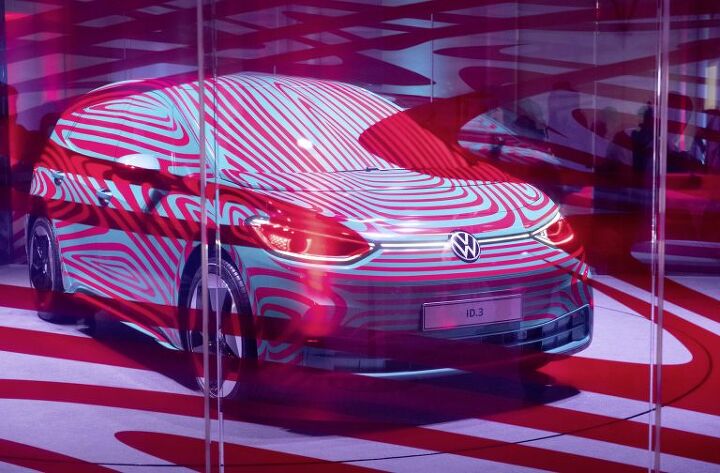















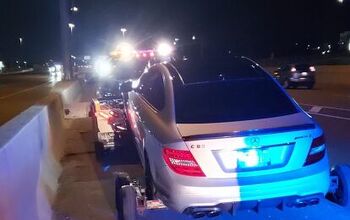
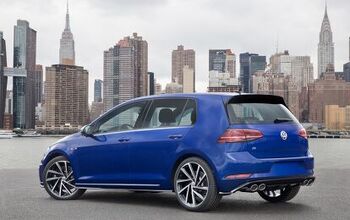





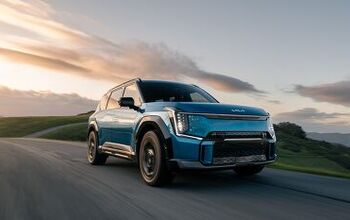



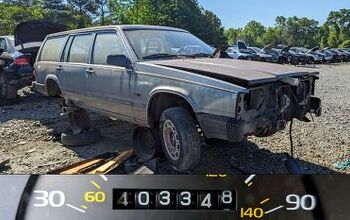



Comments
Join the conversation
Given the slow tickle of e-Golfs Volkswagen is able to get to areas of high demand, I take all this with a grain of salt.
China had been saying for years it wanted to be the Number One source for LiON batteries. No one paid them the least attention as they inked up contracts on cobalt and lithium worldwide. Except Tesla. Also China itself is the source of rare-earth minerals for permanent magnets and doles these out sparingly to the West. So here we are with the average car manufacturer a day late and a dollar short as usual, and people wonder why EVs are gong to made in huge quantities in China. Because they can make the batteries that's why, while the chickens run around with their heads cut off in the EU looking for supply. Tesla got this part right. Now we can watch the others squirm.